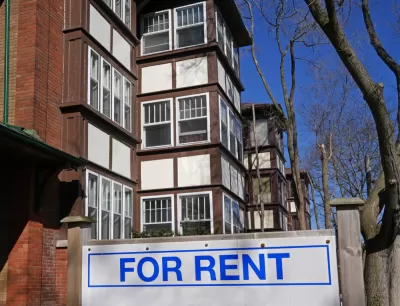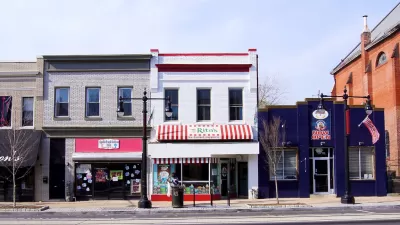A higher share of Americans are renters than at any point in decades. Neighborhoods all over the country, especially in downtowns, have many more renters than they did in 2010.

Recent analysis by RentCafe sheds light on how the growing share of renters in the U.S. population—a trend reflected in national statistics for years now—is transforming neighborhoods.
According to this analysis which uses the latest data from the U.S. Census Bureau, 101 U.S. zip codes switched to majority renter in the past decade. An article by Andrea Neculae for RentCafe provides more details on the analysis, including infographics to reflect the trends and locate the parts of the country with most new majority renter neighborhoods.
Philadelphia has the most new majority renter zip codes of any U.S. city, with seven, followed by Memphis and Houston, each with six. The analysis also ranked zip codes by the percentage of change in the number of renters. The 43240 zip code in Columbus, Ohio leads the list with a 157 percent change, followed by 60606 in Chicago and 78256 in San Antonio, with 151 percent and 132 percent, respectively.
The analysis notes that downtown areas, in particular, became more popular for young renters over the past decade—as reflected in the zip codes with the largest changes in renter populations since 2010.
FULL STORY: Renting Out the Neighborhood: 101 Zip Codes Switch From Homeowner to Renter Majority

Planetizen Federal Action Tracker
A weekly monitor of how Trump’s orders and actions are impacting planners and planning in America.

Maui's Vacation Rental Debate Turns Ugly
Verbal attacks, misinformation campaigns and fistfights plague a high-stakes debate to convert thousands of vacation rentals into long-term housing.

Restaurant Patios Were a Pandemic Win — Why Were They so Hard to Keep?
Social distancing requirements and changes in travel patterns prompted cities to pilot new uses for street and sidewalk space. Then it got complicated.

In California Battle of Housing vs. Environment, Housing Just Won
A new state law significantly limits the power of CEQA, an environmental review law that served as a powerful tool for blocking new development.

Boulder Eliminates Parking Minimums Citywide
Officials estimate the cost of building a single underground parking space at up to $100,000.

Orange County, Florida Adopts Largest US “Sprawl Repair” Code
The ‘Orange Code’ seeks to rectify decades of sprawl-inducing, car-oriented development.
Urban Design for Planners 1: Software Tools
This six-course series explores essential urban design concepts using open source software and equips planners with the tools they need to participate fully in the urban design process.
Planning for Universal Design
Learn the tools for implementing Universal Design in planning regulations.
Heyer Gruel & Associates PA
JM Goldson LLC
Custer County Colorado
City of Camden Redevelopment Agency
City of Astoria
Transportation Research & Education Center (TREC) at Portland State University
Jefferson Parish Government
Camden Redevelopment Agency
City of Claremont





























